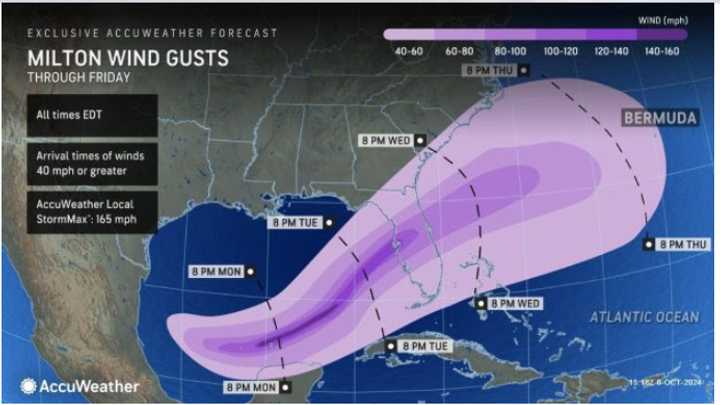Milton, moving east to northeast across the Gulf of Mexico, was upgraded to become a Category 1 storm Sunday afternoon, Oct. 6, less than 24 hours after it became a tropical storm.
Landfall is expected on Florida's west coast on Wednesday, Oct. 9 along the northern part of Florida's west coast, likely near Tampa Bay, where more than 20 inches of rain, 10 to 15 feet of storm surge, 120 to140 mile-per-hour wind gusts are possible.
The National Hurricane Center said it's "too soon to specify the exact magnitude and location of the greatest impacts," but said the Florida peninsula should begin to be affected by the storm Tuesday night, Oct. 8.
There will be a risk of tornadoes and extended power outages across the entire peninsula, the center said.
"“Milton may be a historic, once-in-a-lifetime storm for Floridians." according to AccuWeather Chief Meteorologist Jon Porter.
Milton's arrival will come less than two weeks -- and in the same area of Florida -- after Category 4 Hurricane Helene made landfall the evening of Thursday, Sept. 26.
The death toll from Helene has risen to around 230, with many still missing, and some towns virtually destroyed, with thousands still without drinkable water or power. That's the most number of deaths from a US hurricane since Katrina resulted in 1,392 fatalities in August 2005.
The 2024 Atlantic hurricane season runs through Saturday, Nov. 30.
This continues to be a developing story. Check back to Daily Voice for updates.
Click here to follow Daily Voice Mt. Kisco and receive free news updates.
